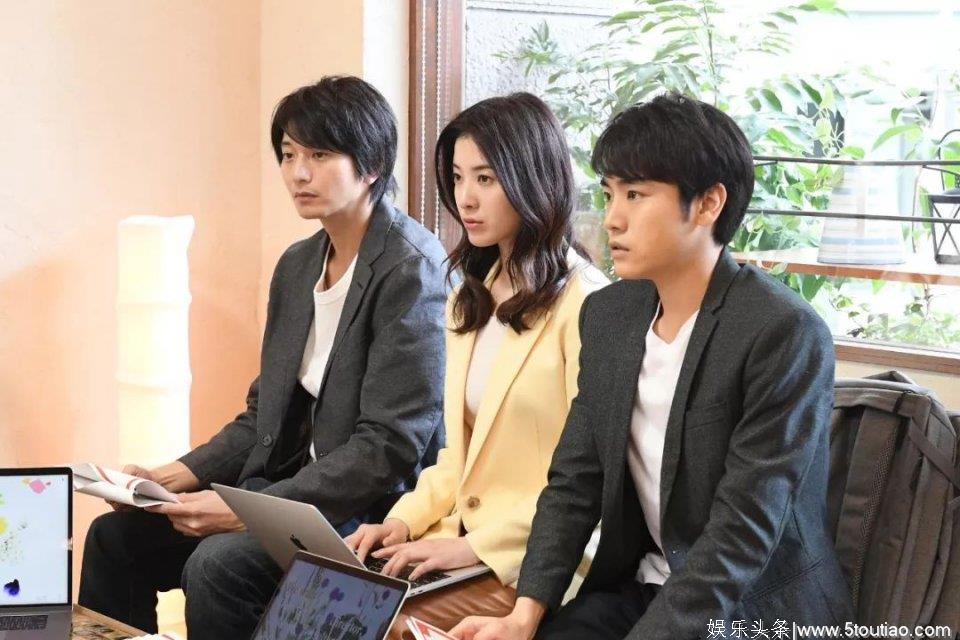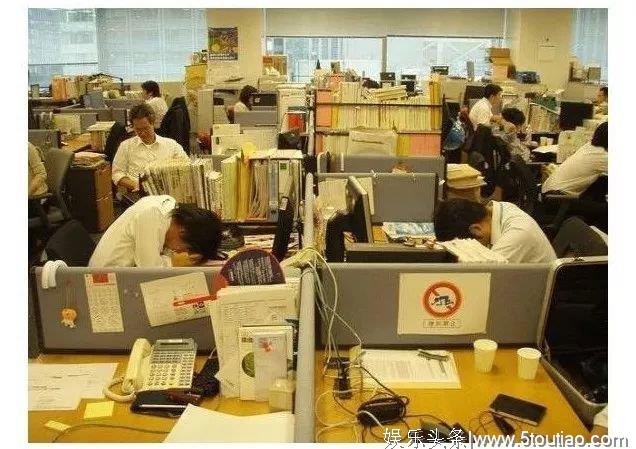日本上班族是不是可以准时下班?这是个好问题。
前阵子996工作制广受热议:早上9点上班,晚上9点下班,一周要工作6天,不少人吐槽简直是要累死在电脑前了。
就在我们热火朝天地讨论996是不是种福气的时候,隔壁以加班出名的日本推出了一部反加班电视剧《我,到点下班》,竟然迎来了《纽约时报》的大篇幅围观。
在日本,一个有意思的电视剧情节:员工可以准时回家吗?
《我,到点下班》改编自朱野归子的同名小说。因为职场新人时代造成的心理创伤, 女主东山结衣坚持“绝对准时下班”的原则。
 《我,到点下班》Via TBS
《我,到点下班》Via TBSLast month, as Americans tuned in to the final episode of “Game of Thrones,” Japan was indulging in its own television fantasy world.
上个月,就在美国人围观“权游”大结局的时候,日本人也在疯狂地追着一部剧。
In this one, a woman dares to leave work at 6 p.m. sharp.
在这部电视剧中,女主敢于挑战加班文化,坚持每天6点准时下班。
The determination of Yui Higashiyama, a 30-something project manager who wants nothing more than to get out of the office and into her favorite bar for happy hour, rocks the fictional web design firm where she works.
东山结衣是一位30多岁的项目经理。每天她只想准点下班,离开办公室后去酒吧喝上一杯。绝对准时下班的原则,震惊了她供职的网页设计公司。
Via New York Times
日本人有多推崇加班文化呢?连小说的原著作者都说自己花了很长时间才接受“在周末不加班是可以的。”
 原著作者朱野归子Kaeruko Akeno via New York Times
原著作者朱野归子Kaeruko Akeno via New York Times “I was extremely conscious that taking a break meant slacking off,” said Kaeruko Akeno, a writer whose novel inspired the program and has the same name. “It took such a long time for me to accept the fact that it’s O.K. to not work on weekends or on weekday nights.”
“我以前极度认同休息一下意味着懈怠这个观点,”作家朱野归子说道,她的小说被改编成这部同名电视剧。“我花了很长时间接受这样一个事实——周末或平日晚上不工作也是可以的。”
Via New York Times
加班文化在日本职场相当普遍。
Japanese workers put in some of the world’s longest hours. In 2017, over a quarter of the country’s full-time employees worked an average of more than 49 hours a week, according to a government report, effectively working six out of seven days.
日本人投入工作的时间全世界最长。根据日本政府的报告,2017年日本超过四分之一的全职员工平均每周工作超过49小时,一周工作六天。
In some extreme cases, that dedication to the workplace can lead to death. In 2017, government data showed, overwork claimed 190 lives — in the form of exhaustion, heart attacks, suicides — a figure that has stayed more or less constant over the last decade.
在一些极端案例中,上班时间过长导致了过劳死。在2017年,日本官方数据显示,过度劳累夺去190人的生命:表现为衰竭,心脏病发作或自杀——这一数字在过去十年中基本没有变化。
Via New York Times
深夜在日本地铁里,经常可以看到工作了一天,横七竖八躺倒在地的社畜们。
 Via pinterest
Via pinterest 随着这部剧的热播,很多网友也现身说法,分享了他们在日本工作的经历。
@Sao As a Japanese, I was not surprised to read this article. However, I am afraid to graduate from university next year and become a member of such a society. It is hoped that Japanese society will change as soon as possible.
作为一个日本人,读这篇文章的时候并不感到惊讶。我明年就要从大学毕业了,我很害怕成为这样一个社会的一员。希望日本社会尽快改变。
@Fourteen14 It's more than just this. My commute in Tokyo was 2 hours each way. Bike, two packed trains like you wouldn't believe, and a 15-minute walk, twice a day.
现实不仅仅如此。我在东京的单程通勤时间是两个小时。要骑自行车,换两部拥挤的火车,再步行15分钟,就这样一天两次。
We'd start with morning exercises together on the roof of the office building. Then work all day with visits to clients until 8 pm. After that the big boss takes us out drinking to 11 pm.
一大早我们在办公楼的屋顶上集合做操,然后挨个拜访客户直到晚上8点。然后大老板带着我们出去喝酒到晚上11点。
At 11 p.m. the entire city is stumbling around drunk trying to find their train for the long commute home. The Tokyo salaryman rarely gets more than five hours sleep every night.
晚上11点,整个城市都醉醺醺的,大家晕乎乎地跳上回家的火车,很少有东京上班族一天能睡超过五个小时。
@YFJ I work for a Japanese company and there’s another downside to overworking. It can stifle innovation. People work so hard they seem to forget that stale inefficient process should be fixed Result is there is no motivation to improve the process. It’s really frustrating sometimes.
我在一家日本公司工作,过度加班还有另一个缺点,就是会扼杀创新能力。人们拼命地工作,但是忘记了去改进和反思陈旧低效的工作方法。结果大家都没有动力改进工作流程。有时候真让人沮丧。
@Bill Fordes I have gone drinking in Japan with workers who stumble out of the restaurant, go to a hotel, sleep 3-5 hours, and go back to work, instead of going home on a train ride of 1.5 hours, to get no sleep.... Absurd....
在日本我和上班族一起喝酒。他们从酒馆里跌跌撞撞地出来,直奔旅馆,睡3-5个小时,第二天再去工作。如果不这样,他们再坐一个半小时的火车回家,就没有时间睡觉了,这真的太荒谬了……
 Via Japan Today
Via Japan Today 这几年,日本由来已久的长时间加班问题也成了社会热议焦点,越来越多公司开始进行改革,日本政府也已采取措施减少工作时长。
In April, just in time for the debut of the TV show, a new law took effect limiting overtime to no more than 45 hours a month and 360 hours per year, barring special circumstances. And Japan’s Ministry of Economy, Trade and Industry has promoted a program it calls Premium Fridays, asking employers to let employees leave a few hours early on the last Friday of every month.
4月份,正值这部剧首播期间,日本一个新法律生效,规定除了特殊情况外每月加班时间不得超过45小时,每年不超过360小时。除此以外,日本经济产业省还推出了一项名为“优质星期五”的计划,要求雇主让员工在每个月的最后一个星期五提前几个小时离开。
“I Will Not Work Overtime, Period!” explores the changes in how millennials and their Japanese elders think about work.
《我,到点下班》正是探讨了千禧一代及其日本上一辈人看待工作的变化。
Via New York Times
你今天加班吗?你怎么看加班文化?
文:小亮亮
整合:The New York Times
图:网络、外媒


